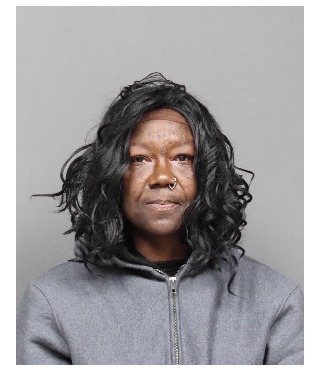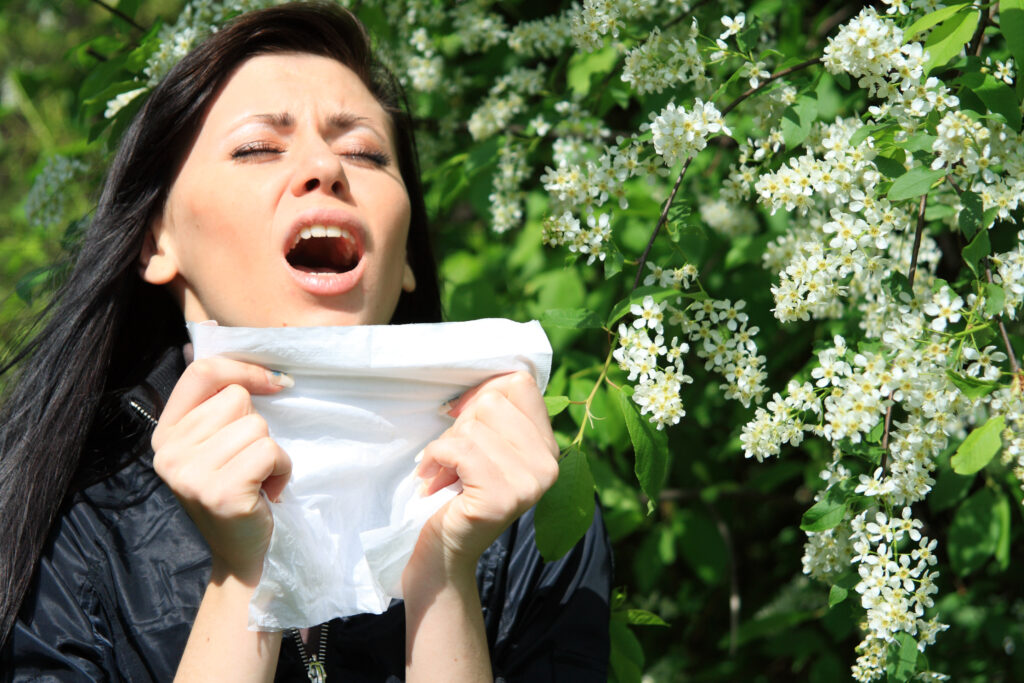LATHAM, NY – Major Dennis Schager, Commander of Troop G, led a memorial service today at the Troop G Headquarters in Latham. The ceremony was held to honor the memory of fallen officers and to support the families they left behind.
During the event, Major Schager emphasized that the fallen heroes are not forgotten and remain an integral part of the State Police family and the esteemed long grey line. The State Police used their Facebook page to reflect on the significance of the ceremony and to reaffirm their commitment to remembering their lost colleagues.

- Former New York City vigilante superhero reemerges in rural New Jersey, blaming Trump and Jews for overdevelopment

A man who used to don tights and a mask to walk the streets of New York City fighting drug dealers and gangbangers has reemerged in rural Jackson Township.
After suddenly going dark in his role as “The Dark Guardian” years ago, he has answered the bat-signal above Jackson Township.
Chris Pollack, previously of Staten Island, is more commonly known as The Dark Guardian, an adult male karate teacher who gave up his superhero cosplay and vigilante gig fighting New York’s drug dealers. prostitutes, gangbangers, peddlers, and other nefarious underbelly elements in the city, to move to suburbia.
And he’s not happy with what he found there.
Now he’s fighting a whole new set of perceived supervillains in one of New Jersey’s largest suburban communities: President Donald Trump, his donors, and local elected Republican officials.
And the Jews, of course, who now ‘control’ Jackson, according to the Dark Guardian.

President Donald J. Trump. Pollack, in a rant on his blog this week, blamed President Trump and members of the local Jewish Orthodox community for overdevelopment in Jackson Township.
“Trump won’t save Jackson, his donors [Jews] are the ones taking it over,” said Pollack, a lifelong activist who made the move from the big city to the suburbs a few years ago. “If you think help is coming from the top to save Jackson, you haven’t been paying attention.”

He blamed Trump megadonor and local philanthropist Richard Roberts and the local Jackson Republican Club President and Jackson Councilman Mordy Burnstein for orchestrating a Jewish takeover of the township.
Pollack was banned earlier this month from Facebook for inciting antisemitism, blaming the growing Orthodox Jewish community in Jackson for all of the town’s problems.
It’s the same dog whistle used by the previous Jackson Council and Democrats in Jackson, which led to the town being crushed in court by the Department of Justice and the Phil Murphy’s Office of the Attorney General.
Prior to coming to Jackson, Pollack, also known as the Dark Guardian used to patrol local city parks, according to a biography written by Amelia Pang.
“In the darkest hours of night, Chris Pollak roams the city for unscrupulous behavior. Wearing a bulletproof vest, and a belt that holds first aid, he shines his flashlight in the faces of gang members and drug dealers. “Hey!” he would shout in an authoritative voice. “This is a drug-free park,” Pang wrote. “For 12 years, he has voluntarily patrolled parks and crime-ridden neighborhoods. Pollak, 30, is a real-life superhero. He goes by “Dark Guardian.” And his life story somewhat resembles that of comic book superheroes, particularly Batman.”
Pollack’s inflamatory rhetoric is clear and he’s no longer confronting crackheads in the park. Now, he’s blogging about the jewish plight on his new hometown. From an apartment on the eastern side of Jackson, Pollack spews online conspiracy theories, blaming local Republican leaders for closing his neighborhood elementary school and a nearby middle school.
The Sylvia Rosenauer Elementary School was closed by the Jackson School District two years and later sold, because the district is suffering from cutbacks made by Governor Phil Murphy’s administration. The board which is not Orthodox Jewish and a mix of Republicans and Democrats had no choice after years of cuts from the district.
McAulliffe Middle School was closed by a mostly Democrat school board in Jackson. No Orthodox Jews served on that board when the school was closed this year. The board was unanimous in its blame, Governor Phil Murphy and his flawed S2 funding formula.
But Pollack publicly blames Jewish leaders of orchestrating a ‘takeover’ of the town, even accusing former School Board President Giusseppe Palmeri, a Republican who has fiercely fought against Governor Murphy’s S2 funding formula, of being involved in the conspiracy.
Overdevelopment in Jackson has been a theme in the community fighting to keeps its rural charm for decades. Jackson is one of the last untouched resources in New Jersey. It’s a town where Republican leaders have fought vigorously against overdevelopment to the point where they were sued by the Biden administration’s Department of Justice and Phil Murphy’s Office of the Attorney General for ‘illegally’ blocking overdevelopment.
The council has done all it could. Over the years, Jackson has bought land from their open space fund to preserve thousands of acres from overdevelopment. It does not have the authority to stop overdevelopment. That lies with the local planning board, which is appointed by the Mayor.
The planning board is responsible for reviewing and approving all major development applications in the town.
Jackson Republicans lost both lawsuits and were forced to change their ordinances and zoning restrictions to allow more overdevelopment.
He claims Burnstein and Roberts are working “Trump’s ground game” in Jackson, saying, “While Roberts pulls strings on the national level, Burnstein works the ground game.”
Burnstein rose to power in Jackson through fair elections, according to reports on record with the Ocean County Election Board.
He was appointed to the Jackson Planning Board with the blessing of longtime Mayor Michael Reina and the all-Republican council. From there, he was elected by the members of the Jackson Republican Club to succeed longtime President Todd Porter, in an open club election. The majority of the club’s members are not Jewish.
Mayor Michael Reina then appointed him to fill a vacancy on the Jackson Council and in 2024, as an incumbent Republican, ran for re-election and defeated four other candidates to become an elected councilman. The Jackson Council, which consists of one Orthodox Jewish representative and four non-Orthodox Jewish members, elected Burnstein to be the council Vice President.
Pollack also blames Reina for the town’s problems and for appointing Burnstein.
Jackson’s longtime Mayor was “Bought”
“Reina was bought – A deal was struck. Money. Political favor. Influence. Something was put on the table that made selling out worth it,” he posted on his blog. “You don’t make a move like this unless something massive is on the table. You don’t hand power to the man who nuked your life just because you had a change of heart. Reina’s 180 wasn’t leadership—it was a mystery. A scandal. A warning.”
“Is Reina profiting from developments behind the scenes?” Pollack asked. “Was he offered a job? A deal? A path out of legal trouble?”
Pollack however says Burnstein bought his way into power, without the details of how that translated into an election victory in a town with just a few thousand Jewish families.
Burnstein credits his victory to his support of President Donald Trump in 2024, against candidates who appeared to be more liberal and not supporters of Trump. Burnstein and his runningmates Giuseppe Palmeri and incumbent Nino Borrelli won the election on a strong conservative platform in one of New Jersey’s most Trump-aligned communities.
“They didn’t win support. They bought their way in, flipped boards, and weaponized the system; all while claiming the Republican mantle and turning their backs on its principles,” Pollack writes. “Jackson belongs to us–Not them.”
It’s that sort of speech that got Pollack banned from Facebook earlier this month, according to Meta, “The only people who can save Jackson are the people who live here, who raise families here, pay taxes here, and believe that local government should serve us, not wealthy elites.”
While Jackson does have a problem with education and overdevelopment, the root cause of the problem can easily be traced back to Trenton, where Democrat Governor Phil Murphy and a Democrat controlled senate and assembly are forcing these conditions upon the town, not to President Trump or the Republican Party.
Jackson has been mandated to build hundreds and thousands of affordable low-income housing units under its affordable housing requirements. The town’s school district has also been defunded by Murphy’s S2 funding formula, but Pollack insists the problem is not Trenton Democrats, but Jackson Republicans, being led by a Trump megadonor, President Trump and the Orthodox Jewish community.
“If we don’t fight back, we’ll lose more than our town; we’ll lose our voice,” he said.
While the real answer to many of Jackson’s current problems lie in Trenton, Pollack remains focused on fighting Trump, local Republicans, and their Jewish donors.
- As pressure mounts, Spadea increases attacks against any Republican who don’t support him

If you’re Bill Spadea, anyone who doesn’t support you is either a communist, a RINO (Republican in Name Only), or a ‘weak Republican.
As pressure mounts against the former loud-mouth FM early morning radio jock, he and his supporters are lashing out against anyone who doesn’t pledge their allegiance to his campaign, even Republicans.
As Ronald Reagan once said of an ’11th commandment’: Thou shalt not speak ill of any fellow Republican. It’s a rule I followed during that campaign and have ever since.
It’s a phrase used as common ground to prevent a split in the party in the general election. It’s a split Spadea and his supporters are creating each day on various social media platforms.
Even well-respected, longtime New Jersey Republicans.
Republican gubernatorial candidate Bill Spadea unleashed a barrage of attacks on both Democrats and fellow Republicans during a campaign event in a Morristown barroom basement, where supporters denounced “RINOs,” “communists,” and “weak Republicans” ahead of the June primary.
In he and other speackers lashed out with denunciations of political opponents.
One supporter declared that the only thing worse than “Communist Democrats” are “RINO Republicans,” a term frequently used by Spadea to describe members of his own party who do not share his hardline stance.
You know, those same opponents he’s going to want to support him the day after the primary election.
Spadea, trailing in most public polls behind GOP rival Jack Ciattarelli, dismissed surveys showing him behind. “Not credible,” Spadea said, referring to the polling data, some of which he claimed came from “a clown who’s been wrong in the past.”
The man appears to be losing his grip, and possibly his mind, as his campaign coffers dwindle slowly.
Spadea’s campaign has leaned heavily into anti-establishment messaging, positioning himself as the only candidate willing to take on what he calls New Jersey’s entrenched political class.
He routinely blames the state’s issues on “woke Democrats” and “weak Republicans,” a theme that has become central to his stump speeches.
He fails to ever mention his top-paid consultant, George Gilmore, who meets often with Governor Phil Murphy and is allied closely with the Norcross syndicate and New Jersey liberal state senator Vin Gopal.
Gilmore has some kind of hold on Spadea, we just don’t know what type of spell it is.
Despite his criticisms of Ciattarelli being an eleciton loser, Spadea has not yet held elected office. In fact, he lost two major elections in his lifetime, so winning hasn’t been a word in Spadea’s dictionary either.
He has made Ciattarelli a frequent target since the former assemblyman narrowly lost to Gov. Phil Murphy in 2021 by about three percentage points—a result Spadea refuses to view as competitive. “My opponent has already lost twice. People know a fraud when they see it,” he said, referencing Ciattarelli’s 2017 and 2021 defeats.
He left out the part about him using his radio gig to tell Republicans not to vote for Ciattarelli in his 2021 election loss against Phil Murphy. You can say Bill Spadea, the hardcore conservative Republican is one of the reasons we had a second Phil Murphy term.
Spadea ‘refused to pull the lever’ for Ciattarelli and told his minions to do the same for months.
Primary race intensifies as polls show gap
With the June primary weeks away, tensions between the two leading Republican contenders are escalating. Spadea has cast himself as the grassroots alternative to Ciattarelli, who has drawn broader party support but continues to face criticism from the far-right flank.
Spadea’s comments come as his campaign struggles to gain ground, according to multiple polls showing Ciattarelli ahead. Spadea has questioned the legitimacy of those polls and urged supporters to disregard what he claims are biased data points meant to demoralize his base.
At the Morristown event, Spadea’s supporters echoed his frustration with party leadership, frequently invoking terms like “RINO” and “sellout” in describing state Republicans they view as too moderate.
The event underscored Spadea’s strategy to rally hardline conservatives in what is expected to be a low-turnout primary, hoping he can infuriate and energize New Jersey’s far-right base in order to defeat the more popular candidate in a four way race.
The candidate’s combative tone and repeated attacks on fellow Republicans have drawn criticism from within the party, with some warning it could damage GOP unity ahead of the general election. But Spadea remains undeterred, insisting that only an outsider can fix what he sees as systemic failure in Trenton.
- Utica woman arrested for attacking man with hammer over money

A Utica woman was arrested Tuesday evening after allegedly attacking a man with a hammer during an argument inside a Genesee Street apartment, according to the Utica Police Department.
At approximately 5:20 p.m. on April 30, police and fire units responded to 1434 Genesee Street for a reported assault. The male victim told officers he was inside the apartment with a group of people when a woman began arguing with him over money.
During the altercation, the suspect allegedly grabbed a hammer and struck the man multiple times in the head and body. The victim was able to flee the scene and contact authorities.
Officers located the suspect nearby and arrested her without incident. She was identified as 49-year-old Dorothea Rolle of Utica and transported to the Utica Police Department for processing.
Suspect faces multiple charges following violent altercation
Following the investigation, Rolle was charged with attempted assault in the second degree, criminal possession of a weapon in the third degree, and petit larceny.
Police have not disclosed the extent of the victim’s injuries or whether medical treatment was required.
Authorities have not yet announced a court date or bond status for the accused.
- Man who raped NYC subway corpse was illegal migrant deported at least four times prior

A Brooklyn man has been arrested and charged with raping an unconscious man aboard a New York City subway train earlier this month, police said Monday.
Felix Rojas, 44, was taken into custody Sunday night by NYPD officers from the 1st Precinct following an investigation led by the department’s Special Victims Division. He faces charges of rape in the first degree in connection with the April 9 attack on a southbound “R” train near the Whitehall Street subway station in Manhattan.

According to police, the incident occurred at approximately 12:20 a.m. when Rojas allegedly engaged in sexual contact with an unconscious and unresponsive male passenger. Rojas fled the scene on foot, sparking a search by investigators that lasted more than two weeks.
It was later determined that the man was deceased.
Authorities used surveillance video, forensic evidence, and community tips to identify and track down Rojas. He was located at a residence on 79th Street in Brooklyn and arrested without incident, law enforcement officials said.
The NYPD had previously released images of the suspect to the public in an effort to gather leads. It remains unclear whether those tips directly led to the arrest or if other investigative methods played a larger role.
Immigration status becomes flashpoint in political response
In the aftermath of the arrest, Secretary Sean Duffy claimed on social media that Rojas had crossed the U.S. border illegally five times, reigniting debate over immigration enforcement and public safety. “Turns out the man accused of raping a corpse on the New York City subway is an illegal who crossed the border five times,” Duffy wrote in a post on X.
The NYPD and U.S. Immigration and Customs Enforcement have not confirmed the suspect’s immigration status, and no federal charges have been filed. Political figures, including New York Gov. Kathy Hochul, have not commented on the claim as of Tuesday.
Rojas’s arraignment is pending in Manhattan Criminal Court. Police have not released further details on the evidence recovered or whether Rojas has retained legal counsel. The condition of the victim has not been publicly disclosed.
Officials emphasized that no additional suspects are being pursued in connection with the case. The investigation remains ongoing.
The arrest follows weeks of concern over subway safety, as city and state officials face pressure to address violent incidents on public transit.
Subway assault suspect captured in Brooklyn after brutal crime shocked city.
- New Jersey Pollen Levels Reach Peak: How to Avoid Allergies, What to Expect, and When Relief Is Coming

As spring blooms across New Jersey, pollen levels are hitting their peak, triggering sneezing, itchy eyes, and congestion for millions of residents. In April and May 2025, tree pollen from oak, birch, and maple trees is at its highest, creating a challenging season for allergy sufferers. With warmer temperatures and increased rainfall fueling robust plant growth, experts predict an intense allergy season. Here’s what you need to know to manage symptoms, what to expect in the coming months, and when relief might arrive.
A Perfect Storm for Pollen

New Jersey’s allergy season kicked off in mid-February, earlier than usual, due to milder winter temperatures and abundant rainfall—up to 75% above average in counties like Passaic, which recorded 17.1 inches of precipitation from December 2024 to February 2025. This wet winter, coupled with a cold snap in March, delayed but intensified tree pollen production, with maples, elms, and cedars now releasing clouds of fine yellow dust. According to AccuWeather, tree pollen is peaking in early May across the Northeast, with levels higher than historical averages in urban areas like Newark and Jersey City.
Dr. Leonard Bielory, a professor at Hackensack Meridian School of Medicine, notes, “We’ve had a tremendous amount of rain, and anytime we see that, we have to gear up for a tough season.” The state’s position in the Northeastern Mixed Forest and Mid-Atlantic Coastal allergy regions means residents face a mix of tree pollen in spring, grass pollen in summer, and weed pollen in fall, with April, May, June, and September being the worst months.
What to Expect in 2025
New Jersey’s allergy season is expected to last approximately 180 days, about 20 days longer than historical norms, driven by climate change and extended growing seasons. Here’s a breakdown of the pollen timeline:
- Spring (March–May): Tree pollen, particularly from oak, birch, and maple, dominates, peaking in early May. Symptoms include sneezing, itchy eyes, nasal congestion, and fatigue. Coastal areas like Atlantic City and Cape May also see pollen from hickory, willow, and mulberry.
- Summer (May–July): Grass pollen, including ryegrass, Timothy grass, and Bermuda grass, takes over, peaking in June. Rain in spring 2025 is expected to keep grass pollen levels average to below average, offering some relief.
- Fall (August–October): Weed pollen, especially from ragweed, lamb’s quarter, and wormwood, peaks in September. AccuWeather predicts above-average weed pollen levels due to warm, moist conditions, extending discomfort into early fall.
- Winter (November–February): Outdoor pollen levels drop significantly after the first frost, typically in late October or early November, providing a respite. However, indoor allergens like dust mites, pet dander, and mold may worsen as residents spend more time indoors.
Health Impacts and Vulnerable Groups
Approximately one in four adults in the U.S. suffers from seasonal allergies, with women more likely to be affected (29.9%) than men (21.1%), according to 2021 National Health Interview Survey data. Pollen triggers allergic rhinitis, an inflammation of the nasal membranes, leading to symptoms like runny nose, sore throat, and watery eyes. High pollen counts can also cause systemic inflammation, potentially affecting mental health and exacerbating conditions like asthma.
Children with asthma are particularly vulnerable. A 2024 study noted increased asthma complications after the discontinuation of Flovent, a popular inhaler, highlighting the need for accessible allergy and asthma treatments. Coastal areas of New Jersey, with high humidity, may see worsened symptoms due to mold spores, while urban areas like Newark face pollen carried by wind from nearby green spaces.
Strategies to Avoid Allergies
Limiting exposure to pollen is key to managing symptoms. Here are evidence-based tips recommended by the American Academy of Allergy, Asthma, and Immunology and local experts:
- Check Pollen Counts Daily: Use resources like Pollen.com or IQAir for real-time pollen forecasts in your area. Pollen levels are highest in the morning and early afternoon, so plan outdoor activities for the evening when counts are lower.
- Stay Indoors on High-Pollen Days: Avoid outdoor activities, especially during windy or dry conditions, which can disperse pollen widely. Keep windows and doors closed at home and in your car, and use air conditioning with HEPA filters to reduce indoor pollen.
- Wear Protective Gear: Sunglasses can shield eyes from pollen, and an N95 or dust mask can reduce inhalation when outdoors. If you wear contact lenses, consider daily disposables to minimize irritant buildup.
- Clean Regularly: Pollen is sticky and clings to clothes, skin, and hair. Shower after being outdoors, wash your face and hands, and change clothes to avoid tracking pollen indoors. Vacuum with a HEPA filter and dust with a damp cloth to keep your home pollen-free.
- Start Medications Early: Begin antihistamines or nasal sprays before peak pollen season to build tolerance. Over-the-counter options are effective for many, but consult a doctor for personalized advice, especially if symptoms are severe or if you have asthma.
- Consider Allergy Testing: At-home allergy tests, like those offered by Wyndly, can identify specific triggers, such as oak or ragweed, allowing for targeted treatment. Skin prick testing with an allergist is another option for precise diagnosis.
When Will It Stop?
Relief from outdoor pollen allergies in New Jersey typically arrives with the first frost, expected in late October to early November 2025, when plants cease pollen production. Tree pollen levels should decline by late May, with grass pollen subsiding by mid-July. Weed pollen, the final major allergen, will taper off after its September peak, though warm weather could extend this into October.
Winter offers a break from outdoor allergens, but indoor allergens may persist. Regular cleaning, using air purifiers, and washing bedding in hot water can mitigate dust mites, pet dander, and mold. For long-term relief, allergy immunotherapy (shots or sublingual tablets) can desensitize the immune system to specific allergens, though it requires months to years of treatment.
Looking Ahead
New Jersey’s 2025 allergy season is shaping up to be intense but manageable with proactive measures. By staying informed about pollen forecasts, minimizing exposure, and seeking appropriate treatments, residents can navigate the season with fewer symptoms. For personalized advice, consult an allergist or visit resources like the American Academy of Allergy, Asthma, and Immunology (AAFA.org) or local platforms like Pollen.com. As Dr. Bielory advises, “Start your medications ahead of the pollen release to build up a tolerance.” With the right strategies, you can enjoy New Jersey’s vibrant spring and summer while keeping allergies at bay.










